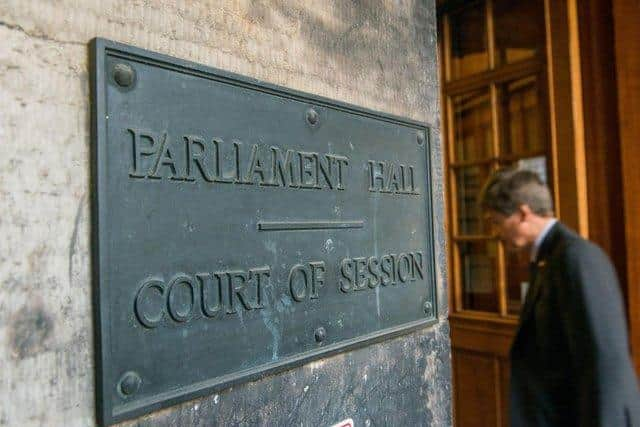Planned legal reforms in Scotland condemned by judges and branded an 'assault on the rule of law'
The Judiciary of Scotland said the proposals would strip Scotland's highest civil court and its Lord President, Lord Carloway, of regulatory powers.
These would instead be transferred to a body responsible to MSPs.
Advertisement
Hide AdAdvertisement
Hide Ad

"To be clear, such an interference with the role of the Lord President and the Court of Session in the manner proposed in this consultation is, in our opinion, an interference with the rule of law," the judges said.
Roddy Dunlop QC, dean of the Faculty of Advocates, called the proposals "an assault on the rule of law that must be resisted, root and branch, with tooth and claw".
It comes after SNP ministers consulted on plans to change the way legal services are regulated and complaints against legal service providers are handled.
An independent review previously recommended there should be a single, independent regulator for all providers of legal services.
However, in a damning submission, the Judiciary of Scotland said the consultation “appears to have proceeded on the fundamentally flawed premise that the legal profession in Scotland regulates itself”.
The judges said: “This is incorrect. The regulator of the legal profession is the Court of Session in the form of the Lord President.”
They said all three of the proposed new models would see regulatory powers removed from the court, adding: "This would create an unwarranted and unacceptable interference by the government and parliament with the judiciary."
Their submission added: "The judiciary will resist with all its strength this and any other attempt by government or Parliament to remove the court's regulatory powers."
Advertisement
Hide AdAdvertisement
Hide AdThe judges said the current framework “has been specifically designed to respect the need for lawyers to be able to protect the fundamental rights and freedoms of individual citizens, without fear of interference from or persecution by the state”.
They stressed: “The dangers of transferring ultimate regulatory power to a body politic cannot be overstated.”
Their submission cited recent attacks on lawyers by politicians "who have, on multiple occasions, publicly criticised 'lefty-activist lawyers' for 'hamstringing' the justice system by challenging the government in court".
The judges said this type of incident “perfectly illustrates why neither political nor government regulation is an appropriate model for regulation of the legal profession”.
They added: “It is of critical constitutional importance that there is an independent legal profession capable and willing to stand up for the citizen against the government of the day.”
Elsewhere, they said high-profile litigations involving the Scottish Government are routinely heard in the Court of Session, and independence from ministers is critical.
Scottish Government officials said the consultation sets out varying levels of potential reform, ranging from light-touch measures to a complete overhaul of the current system.
A spokesman said: “We thank the judiciary for their response to the consultation, which has generated a wide variety of opinions, and will carefully consider their views.
Advertisement
Hide AdAdvertisement
Hide Ad“Scotland has one of the best legal professions in the world. However improvements are needed to further support access to justice in modern Scotland.
"Ministers will carefully consider all the consultation responses and a report will be published in due course.”
Comments
Want to join the conversation? Please or to comment on this article.

